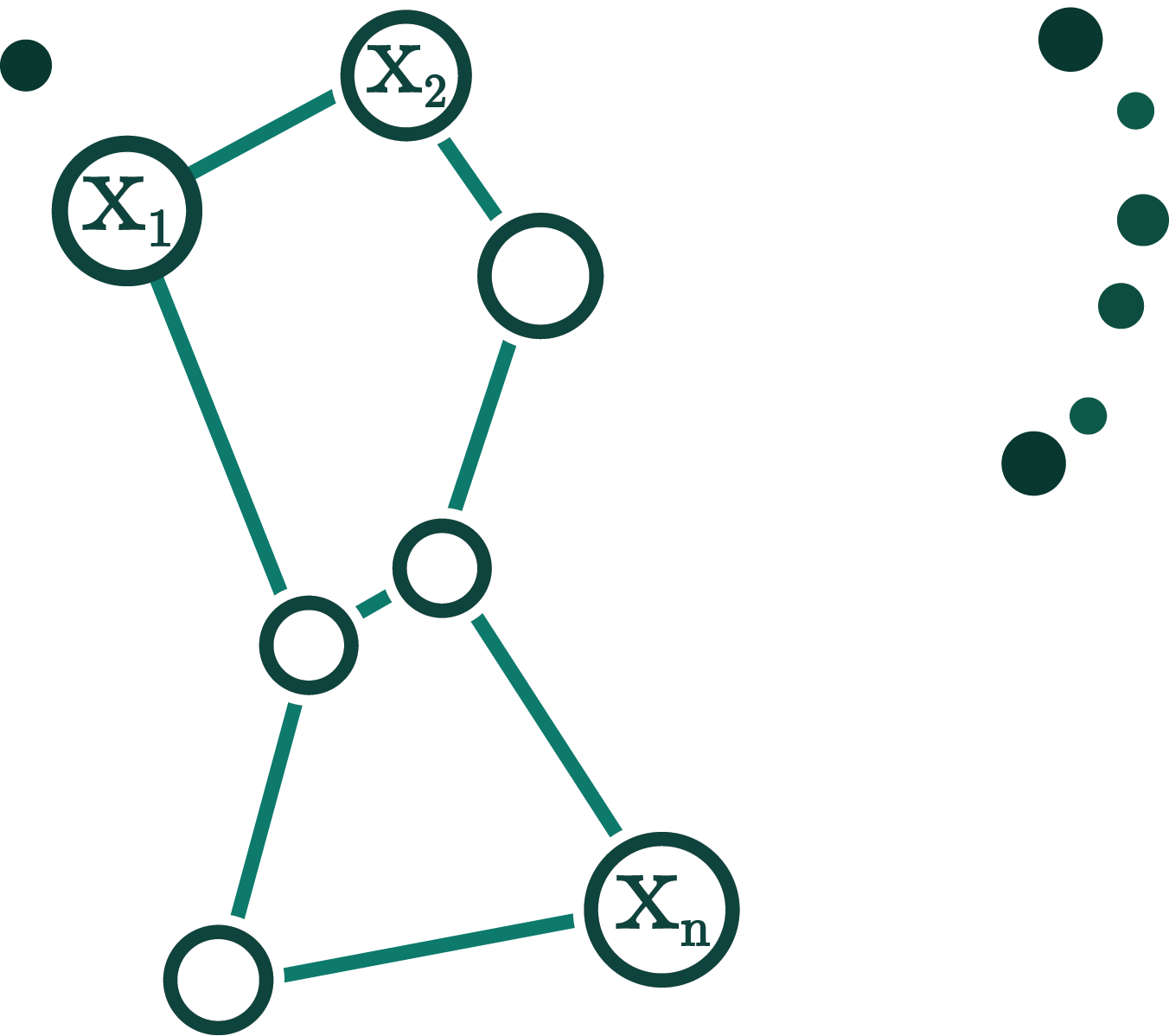Orion is a machine learning library built for data generated by satellites.
Project description


Orion
- License: MIT
- Development Status: Pre-Alpha
- Homepage: https://github.com/signals-dev/Orion
- Documentation: https://signals-dev.github.io/Orion
Overview
Orion is a machine learning library built for unsupervised time series anomaly detection. With a given time series data, we provide a number of “verified” ML pipelines (a.k.a Orion pipelines) that identify rare patterns and flag them for expert review.
The library makes use of a number of automated machine learning tools developed under Data to AI Lab at MIT.
Recent news: Read about using an Orion pipeline on NYC taxi dataset in a blog series:
| Part 1: Learn about unsupervised time series anomaly detection | Part 2: Learn how we use GANs to solving the problem? | Part 3: How does one evaluate anomaly detection pipelines? |
|---|---|---|
 |
 |
 |
Notebooks: Discover Orion through colab by launching our notebooks!
Quickstart
Install with pip
The easiest and recommended way to install Orion is using pip:
pip install orion-ml
This will pull and install the latest stable release from PyPi.
In the following example we show how to use one of the Orion Pipelines.
Fit an Orion pipeline
We will load a demo data for this example:
from orion.data import load_signal
train_data = load_signal('S-1-train')
train_data.head()
which should show a signal with timestamp and value.
timestamp value
0 1222819200 -0.366359
1 1222840800 -0.394108
2 1222862400 0.403625
3 1222884000 -0.362759
4 1222905600 -0.370746
In this example we use lstm_dynamic_threshold pipeline and set some hyperparameters (in this case training epochs as 5).
from orion import Orion
hyperparameters = {
'keras.Sequential.LSTMTimeSeriesRegressor#1': {
'epochs': 5,
'verbose': True
}
}
orion = Orion(
pipeline='lstm_dynamic_threshold',
hyperparameters=hyperparameters
)
orion.fit(train_data)
Detect anomalies using the fitted pipeline
Once it is fitted, we are ready to use it to detect anomalies in our incoming time series:
new_data = load_signal('S-1-new')
anomalies = orion.detect(new_data)
:warning: Depending on your system and the exact versions that you might have installed some WARNINGS may be printed. These can be safely ignored as they do not interfere with the proper behavior of the pipeline.
The output of the previous command will be a pandas.DataFrame containing a table of detected anomalies:
start end severity
0 1394323200 1399701600 0.673494
Leaderboard
In every release, we run Orion benchmark. We maintain an up-to-date leaderboard with the current scoring of the verified pipelines according to the benchmarking procedure.
We run the benchmark on 11 datasets with their known grounth truth. We record the score of the pipelines on each datasets. To compute the leaderboard table, we showcase the number of wins each pipeline has over the ARIMA pipeline.
| Pipeline | Outperforms ARIMA |
|---|---|
| TadGAN | 8 |
| LSTM Dynamic Thresholding | 8 |
| LSTM Autoencoder | 7 |
| Dense Autoencoder | 7 |
| Azure | 0 |
You can find the scores of each pipeline on every signal recorded in the details Google Sheets document. The summarized results can also be browsed in the following summary Google Sheets document.
Resources
Additional resources that might be of interest:
- Learn about benchmarking pipelines.
- Read about pipeline evaluation.
- More about database design.
- Find out more about TadGAN.
Citation
If you use Orion for your research, please consider citing the following paper:
Alexander Geiger, Dongyu Liu, Sarah Alnegheimish, Alfredo Cuesta-Infante, Kalyan Veeramachaneni. TadGAN - Time Series Anomaly Detection Using Generative Adversarial Networks.
@inproceedings{geiger2020tadgan,
title={TadGAN: Time Series Anomaly Detection Using Generative Adversarial Networks},
author={Geiger, Alexander and Liu, Dongyu and Alnegheimish, Sarah and Cuesta-Infante, Alfredo and Veeramachaneni, Kalyan},
booktitle={2020 IEEE International Conference on Big Data (IEEE BigData)},
organization={IEEE},
year={2020}
}
History
0.1.6 - 2021-02-08
This version introduces two new pipelines: LSTM AE and Dense AE.
In addition to minor improvements, a bit of code refactoring took place to introduce
a new primtive: reconstruction_errors.
Issues resolved
- Comparison of DTW library performance - Issue #205 by @sarahmish
- Not able to pickle dump tadgan pipeline - Issue #200 by @sarahmish
- New pipeline LSTM and Dense autoencoders - Issue #194 by @sarahmish
- Readme - Issue #192 by @pvk-developer
- Unable to launch cli - Issue #186 by @sarahmish
- bullet points not formatted correctly in index.rst - Issue #178 by @micahjsmith
- Update notebooks - Issue #176 by @sarahmish
- Inaccuracy in README.md file in orion/evaluation/ - Issue #157 by @sarahmish
- Dockerfile -- docker does not find orion primitives automatically - Issue #155 by @sarahmish
- Primitive documentation - Issue #151 by @sarahmish
- Variable name inconsistency in tadgan - Issue #150 by @sarahmish
- Sync leaderboard tables between
BENCHMARK.mdand the docs - Issue #148 by @sarahmish
0.1.5 - 2020-12-25
This version includes the new style of documentation and a revamp of the README.md. In addition to some minor improvements
in the benchmark code and primitives. This release includes the transfer of tadgan pipeline to verified.
Issues resolved
- Link with google colab - Issue #144 by @sarahmish
- Add
timeseries_anomaliesunittests - Issue #136 by @sarahmish - Update
find_sequencesin converting series to arrays - Issue #135 by @sarahmish - Definition of error/critic smooth window in score anomalies primitive - Issue #132 by @sarahmish
- Train-test split in benchmark enhancement - Issue #130 by @sarahmish
0.1.4 - 2020-10-16
Minor enhancements to benchmark
- Load ground truth before try-catch - Issue #124 by @sarahmish
- Converting timestamp to datetime in Azure primitive - Issue #123 by @sarahmish
- Benchmark exceptions - Issue #120 by @sarahmish
0.1.3 - 2020-09-29
New benchmark and Azure primitive.
- Implement a benchmarking function new feature - Issue #94 by @sarahmish
- Add azure anomaly detection as primitive new feature - Issue #97 by @sarahmish
- Critic and reconstruction error combination - Issue #99 by @sarahmish
- Fixed threshold for
find_anomalies- Issue #101 by @sarahmish - Add an option to have window size and window step size as percentages of error size - Issue #102 by @sarahmish
- Organize pipelines into verified and sandbox - Issue #105 by @sarahmish
- Ground truth parameter name enhancement - Issue #114 by @sarahmish
- Add benchmark dataset list and parameters to s3 bucket enhancement - Issue #118 by @sarahmish
0.1.2 - 2020-07-03
New Evaluation sub-package and refactor TadGAN.
- Two bugs when saving signalrun if there is no event detected - Issue #92 by @dyuliu
- File encoding/decoding issues about
README.mdandHISTORY.md- Issue #88 by @dyuliu - Fix bottle neck of
score_anomalyin Cyclegan primitive - Issue #86 by @dyuliu - Adjust
epochmeaning in Cyclegan primitive - Issue #85 by @sarahmish - Rename evaluation to benchmark and metrics to evaluation - Issue #83 by @sarahmish
- Scoring function for intervals of size one - Issue #76 by @sarahmish
0.1.1 - 2020-05-11
New class and function based interfaces.
- Implement the Orion Class - Issue #79 by @csala
- Implement new functional interface - Issue #80 by @csala
0.1.0 - 2020-04-23
First Orion release to PyPI: https://pypi.org/project/orion-ml/
Project details
Release history Release notifications | RSS feed
Download files
Download the file for your platform. If you're not sure which to choose, learn more about installing packages.
Source Distribution
Built Distribution
File details
Details for the file orion-ml-0.1.6.tar.gz.
File metadata
- Download URL: orion-ml-0.1.6.tar.gz
- Upload date:
- Size: 1.0 MB
- Tags: Source
- Uploaded using Trusted Publishing? No
- Uploaded via: twine/3.2.0 pkginfo/1.5.0.1 requests/2.24.0 setuptools/47.3.1.post20200622 requests-toolbelt/0.9.1 tqdm/4.47.0 CPython/3.6.10
File hashes
| Algorithm | Hash digest | |
|---|---|---|
| SHA256 | 816d843dc000000149b7b6818fd7a938eb80bb0197651d71638b4c7635923cfa |
|
| MD5 | 9bbe1c67ecb441ae0b97d4c775f1f73a |
|
| BLAKE2b-256 | a361345cc08440d2446947ce63d461a0676d5cbcf1a203e8eabcdf1742b2516e |
File details
Details for the file orion_ml-0.1.6-py2.py3-none-any.whl.
File metadata
- Download URL: orion_ml-0.1.6-py2.py3-none-any.whl
- Upload date:
- Size: 104.6 kB
- Tags: Python 2, Python 3
- Uploaded using Trusted Publishing? No
- Uploaded via: twine/3.2.0 pkginfo/1.5.0.1 requests/2.24.0 setuptools/47.3.1.post20200622 requests-toolbelt/0.9.1 tqdm/4.47.0 CPython/3.6.10
File hashes
| Algorithm | Hash digest | |
|---|---|---|
| SHA256 | e906e3439ab9a17968f4f32563cafc90379b5357d9d4846c9401994fe6d39951 |
|
| MD5 | ad9c3d73e377a182d3aca3075f7149d3 |
|
| BLAKE2b-256 | 1c88e85dd53eac0316694d0b1c166cf2d55085b6e44001d78e6aba9e2a6c1cc0 |



















